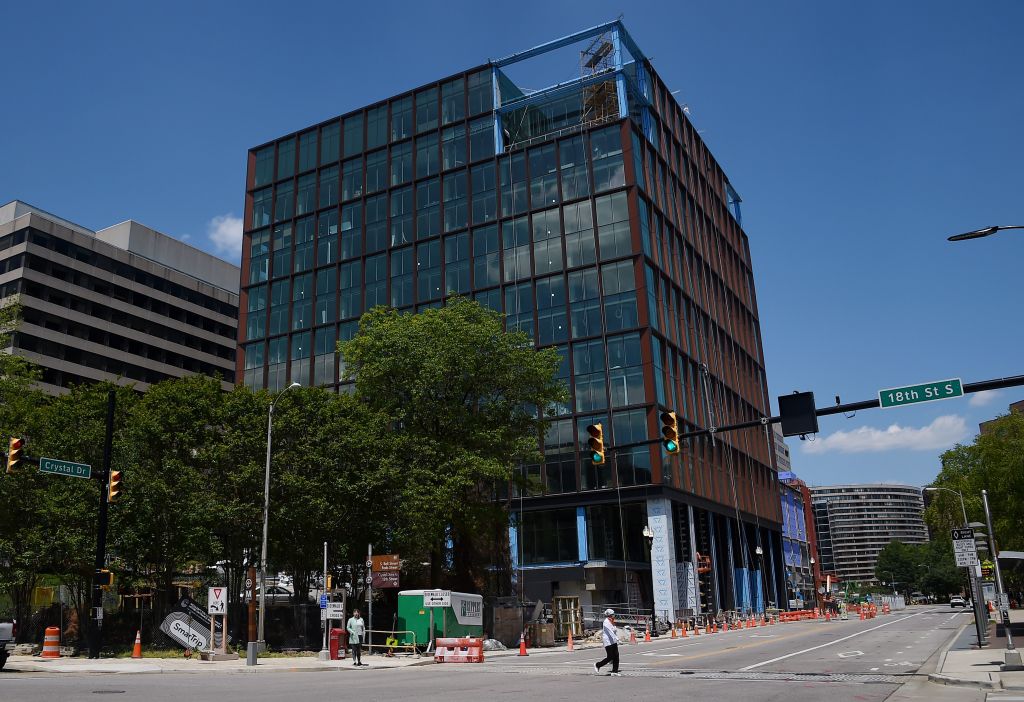Last month, Spectator World contributor Casey Chalk wrote an article for the Abbeville Institute about the suburbanization of Northern Virginia, and specifically about real estate developer John T. “Til” Hazel Jr., whose projects in the 1970s and ’80s considerably defined Virginia’s portion of the DC suburbs.
“Tysons Corner, Fair Lakes, Franklin Farm, Burke Centre, and Fairfax Station, if you’ve heard of them, all owe their current existence as prominent residential or commercial zones to Hazel,” writes Chalk. He goes on to argue, as many do of Northern Virginia, that for all its diversity and proximity to a major city, the region lacks a core or center, as well as the sense of neighborliness and community that once thrived in the area’s smaller-town agricultural days. Chalk writes:
That, I would argue, is the problem with the Northern Virginia Hazel helped fashion. Its counties are some of the wealthiest in the country. Its public schools and libraries (if you don’t mind the wokeism) are some of the highest rated in the country. It is remarkably diverse, with large Asian, African, and Latino populations that brought their heritages (and cuisines) with them.
But what it lost, ironically, was an identity. The most common complaints I hear about Northern Virginia are either the traffic or its transient nature. Few people are actually from here. Every year, thousands move to Northern Virginia for government (or contractor) jobs. And every year, thousands more depart for other states (or countries). Few actually want to retire in Northern Virginia, and fewer still would actually say it possesses a cultural identity worth preserving. It is less a “somewhere” than it is the land of the “nowheres.”
How true is this frequently made critique of Northern Virginia as transient, centerless and bland? Certainly, Northern Virginia is no longer “the South.” I’m originally from New Jersey, and Fairfax County might as well be somewhere between Philly and the Big Apple, just with less good pizza. Many consider the South to truly begin at Fredericksburg these days, or even at Richmond. Maybe the Old Southerners will have a point if, or when, the erstwhile Confederate capital becomes a de facto Yankee outpost.
But while it’s inarguable that Northern Virginia’s has lost its Southern-ness, is it true that it lacks a new identity or sense of place? At first glance it might seem that way. Washington, DC may be the imperium, but it also has a strong local culture and pride of place. Maryland loves its crabs and its flag. Northern Virginia, the third member of the “DMV,” can sometimes look like little more than garish McMansions, traffic and military-industrial bigwigs (especially if you happen to be driving through Great Falls).
My wife and I ended up in Fairfax County because, like so many people in the region, we came for the jobs. When we moved here five years ago, I assumed I was moving to a great big bedroom community, and that any attempts to experience a sense of culture and history would involve daytripping into DC or the Virginia countryside.
But we quickly realized that it was more than that. I have no idea whether we’ll retire in Northern Virginia — I’m not that old or rich — but it absolutely possesses a “cultural identity worth preserving.” In fact, I’ve become proud of living here. You can go thrifting or shop at the Tysons Galleria. You can visit Annandale, a suburban Koreatown, or Eden Center, a strip mall that doubles as a Vietnamese cultural center. You can raise kids to go apple picking one day and eat pho the next. Virginia’s burgeoning wine industry is a point of local pride. The region’s traffic and heavily suburban form disguise its richness.
What it really comes down to, for me at least, is that you can share a few hundred square miles of land between the nation’s capital and the Virginia countryside with people from almost 150 countries, and it just works. It’s genuine and unselfconscious. Say what you will about capital-D “Diversity,” but there’s nothing “politically correct,” or politically tinged at all, about having Ethiopian food for dinner or sharing the checkout line with people from Bangladesh.
A region that can accommodate all these contrasts and still work is a microcosm of this country, and that’s a good thing. The pride I feel for this region is the same sort of pride I feel in America. Arguably Northern Virginia’s biggest problem — housing prices and affordability — holds back a lot of rootedness, and sends away a lot of people who would like to stay.
Chalk’s critique of suburban sprawl and its sense of sameness is fine enough; I share much of it. But this region sprawled for a reason. The metro area is growing — not just because of government jobs — and people have to live somewhere. If we wanted Fairfax County to be dairy farms, we needed to build a lot more in Arlington County. And if we want Loudoun and Prince William Counties to stay rural, we’ll need to build a lot more in Fairfax County.
Housing policy might seem wonky, and it’s easy to say “move somewhere else.” But if that’s our only answer — if traffic is unacceptable and density is intolerable — what we’re really saying is that there are too many people. A conservative, let alone a social or religious one, can never believe that the problem is too many people. One day, babies turn into neighbors.
If anything, Northern Virginia doesn’t have enough people. So much of its awkward, empty suburban spaces could host homes and businesses. So much underutilized land could be filled in. So much more enterprise and energy could fit in here and join the fray.
I’m quite happy to be that rare person proud of putting down roots in Northern Virginia. And I’ll be happy to sit in a little more traffic so that more people can do the same.


















